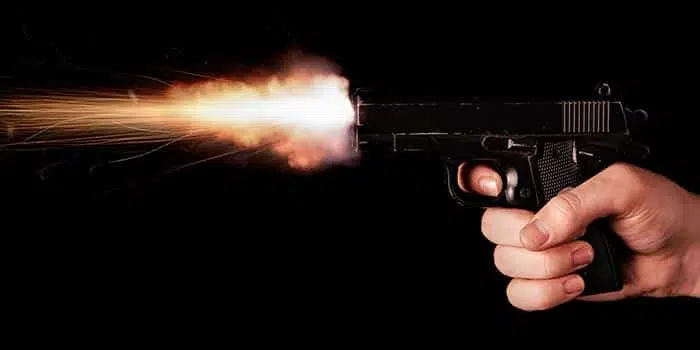In a late-night gathering that turned tragic, a Milwaukee poker game on the city’s northwest side led to a deadly shooting on October 18. Donovan C. Jones, aged 35, has been charged with two counts of first-degree reckless homicide after allegedly shooting and killing two participants. The incident occurred near West Ruby and Appleton avenues, where a group had convened for a private poker session.
On that fateful Friday evening, what began as a routine poker game among friends and acquaintances spiraled into chaos and violence. The game, which stretched into the early morning hours, was disrupted when attendees spotted a masked individual approaching the residence. Witnesses described the intruder as wearing a black ski mask and seemingly holding a rifle, triggering immediate concern among those present.
Security footage later corroborated these reports, showing the masked figure entering the home briefly before exiting quickly. This fleeting yet disturbing intrusion set off a chain of events that culminated in tragedy. In the ensuing panic, Jones, along with his cousin Shaquille Madison, 33, and their friend Dwayne Carter, 43, armed themselves and retreated to the basement of the house.
Jones recounted to investigators that in the tense moments that followed, he concealed himself under the stairs, listening intently to the sounds of footsteps nearby. Overcome with fear, he fired multiple shots at what he perceived to be a shadowy figure moving in the darkness. It was only later, upon reflection, that Jones feared he might have inadvertently shot one of his own friends. In a state of shock, he dialed 911, confessing to the operator his fear and the possibility that he had killed someone he knew.
The Milwaukee police officers who arrived at the scene discovered Carter dead in the basement, while Madison was found outside the house, critically injured. Madison was transported to a local hospital but succumbed to his injuries shortly thereafter. Investigators recovered nine shell casings from the scene, all linked to Jones’ firearm. There was no evidence to indicate any other weapons were discharged inside or outside the property.
Eyewitness accounts painted a picture of the confusion and horror that unfolded. One woman, who had been tidying up after the game, described how the masked man made a threatening gesture by pointing the rifle and mimicking shooting sounds before fleeing. She then sought refuge in the basement, where she heard gunfire and later discovered Carter lifeless on the floor. Meanwhile, a card dealer present at the game recounted seeing Madison stagger out of the house just after the shots were fired.
The interior of the house, described by police as an informal poker venue, featured tables, televisions, and house rules prominently displayed on the walls. Despite the violent turn of events, both Carter and Madison were found to have substantial amounts of money on their persons—Carter with over $5,000 and Madison with more than $8,000 in a backpack—suggesting that robbery was not the intruder’s motive, or at least not successfully carried out.
In the legal proceedings that followed, prosecutors argued that while Jones may not have intended to kill, his reckless actions demonstrated a clear disregard for human life. If convicted on both counts, Jones faces a potential maximum sentence of 60 years in prison for each charge. He remains in custody, held on a $35,000 cash bond, with his court appearance scheduled for the upcoming week.
This harrowing incident underscores the volatile nature of underground gambling circles, where high stakes and distrust can easily escalate into violence. Such environments, often operating outside the bounds of legal oversight, carry inherent risks not only from potential criminal elements but also from the participants themselves, who may feel threatened or cornered when unexpected situations arise.
Conversely, some voices within the community question the fairness of the charges against Jones, pointing to the immediate threat posed by the masked intruder as a mitigating factor. They argue that Jones’ response, albeit tragically misjudged, was spurred by a genuine fear for his safety and the safety of others. The split-second decision-making demanded in such high-pressure scenarios, they contend, can lead to catastrophic yet unintended consequences.
This case serves as a stark reminder of the unpredictability and danger associated with unregulated poker games and other similar gatherings. As the legal process unfolds, it will likely provoke broader discussions about the responsibilities of organizers and participants in ensuring safety and the potential for reform in how such activities are monitored and managed within the community. As the court date approaches, all eyes will be on whether the justice system will weigh the complexity of the situation against the severity of the outcome.

David Harrison stands tall in gambling journalism, marrying his firsthand casino experiences with a deep understanding of betting psychology. His articles transform complex gambling jargon into engaging tales of strategy and chance, making the world of betting accessible and enjoyable. David’s knack for narrative extends beyond print, making him a sought-after speaker on gambling trends and future bets. In the realm of gambling, David is both a scholar and a storyteller, captivating readers and listeners alike.
















